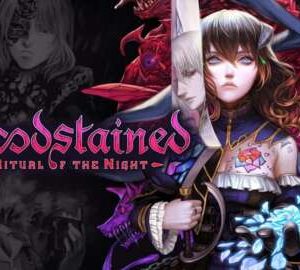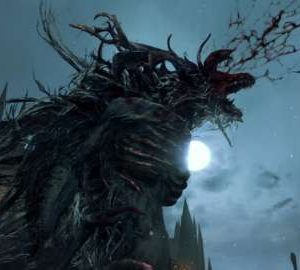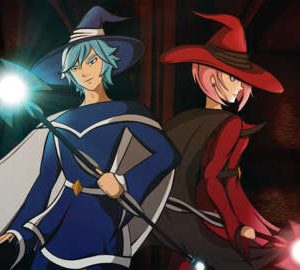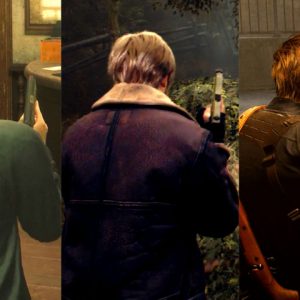Blizzard’s announcement of Diablo 4 during the opening ceremony of Blizzcon 2019 described an installment of the action-RPG series that sounds very different from its 2012 predecessor. Diablo 4 returns the franchise to its darker roots. While Diablo helped inspire the slate of loot-chasing games that have recently arisen, it looks like Blizzard is borrowing some ideas from those games to make Diablo 4 something more of a shared-world experience.
After the announcement, Blizzard made a short demo available on the show floor, where we played about 10 minutes of Diablo 4. The most striking element is the game’s use of ideas similar to what’s seen in games such as Destiny 2 or Dark Souls. You’re a warrior fighting off hordes of evil creatures throughout the world of Sanctuary, but you’re not alone. Not only do you have your cooperative teammates, but in the demo we saw, the world was also alive with other players fighting just as hard to dispel undead fiends and demonic creatures.
The demo included three different character classes: the Barbarian, the Sorceress, and the Druid. Taking on the role of the shape-shifting druid, we quickly delved into the horrific world of Sanctuary, dropping into the middle of a quest that sent us exploring a crypt in search of a particular lantern. The formula was immediately familiar–Diablo 4’s combat takes on a fast pace, while offering you a number of abilities to bring to bear against your enemies–but Blizzard’s darker approach to the game came through just as quickly, punctuated by a short cinematic in which your character climbs through a pit of bodies, up out of a subterranean cave, and through the dirt of a literal graveyard.











Once out in the world, Diablo 4 presented what felt like a more awful, desperate Sanctuary, but one that was also more alive. Wandering toward the village of Corbach, I started running into other players as they thrashed through monsters and interacted with distraught and forlorn villagers. In a practical way, those extra bodies in the world help create a lot of, well, extra bodies. You’re seemingly as likely to wander across live enemies in the world as dead ones that someone else has already eliminated, which provides a distinct feeling that while the humans of Sanctuary are on the brink of destruction, there are still plenty of warriors around fighting back.
You’re seemingly as likely to wander across live enemies in the world as dead ones that someone else has already eliminated
Those extra players mean there’s opportunity to make Diablo 4 feel more dangerous, as well. Though you might cross a field behind someone else who has mopped up all the mobs just before your arrival, you can also stumble across some hulking creature that you simply couldn’t handle on your own. These encounters take on the feeling of public events in shared-world games, where multiple players band together spontaneously to destroy something that would be otherwise beyond their powers on their own. Stumbling across one of these massive demons in Diablo 4 can be frightening, but with other players around, they also engender a sense of shared purpose.
As the Druid, your abilities mostly concern transforming into powerful creatures to deal massive damage, and knocking enemies around to stun them and control the battlefield. Your basic attack turns you into a werewolf to swipe away with your claws, and the rest of your moves tend to dish out big blasts of damage across certain areas. One lets you transform into a bear and charge through multiple enemies while repositioning yourself; another tosses a pair of boulders at enemies that leaves them stunned; yet another sends a pair of wolves after one enemy while you deal with another. Where the Barbarian is all about big damage and the Sorceress focuses on area-of-effect and stuns, the Druid seems to be a balance of the two.






During the opening ceremony, Blizzard described its intention to lean into the horror of the Diablo franchise, and even in our short demo, there was evidence that this is the case. The cinematic trailer is certainly full of disturbing sights, and the cutscene of your escape from the cave helps telegraph Diablo 4’s underlying dread very early. A mission I took on for the local village leader had a significant horror bent as well. It centered on the woman’s son, a fitful youth who’s been having prophetic visions of a lantern and insists he needs to find and retrieve it. The venture through the early cave culminates in discovering the lantern, but returning it didn’t make the son better, but worse–now he wanted to take it and wander into a cave.
When I went to the cave in his stead, I discovered why he was drawn there: the previous elder had been using the lantern and its dark magic power to sacrifice young people to a witch, ensuring the village’s prosperity. But even destroying the witch wasn’t enough to save the boy. Back at the village, I arrived just in time to watch him choke on blood while his mother watched in horror.
It was a tragic and horrific moment, and it seems that’s exactly what Blizzard intends in Diablo 4’s aesthetic and thematic focus. Paired with its shared-world approach, it seems we can expect Diablo 4 to offer a pretty different take on the franchise from its predecessor.
























